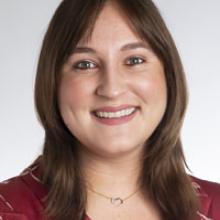Why did you decide to choose developmental science as a course of study or career?
I grew up in California and left home and moved to New Orleans for my undergraduate studies. Moving to the Southern U.S. was a huge culture shock for me, and the city of New Orleans was hugely influential on my own development as an emerging adult. I was exposed to a history of racism in the South that I had grown up so unaware of in California and was particularly radicalized by taking an Educational Psychology class and learning about clearly racism and class segregation was baked into the restructure of the New Orleans public school system after Hurricane Katrina. From there I wanted to know more about how bias and prejudice influences youth development and be part of the solution to eradicate racism from schools. I am motivated by the belief that school should be a safe place for all students.
Is there a mentor or mentors who have been instrumental to your studies and career path so far, and, if so, who and how?
Dr. Micheal Cunningham of Tulane University and his former graduate students Jenny Rious, Xzania White, and Kristin Scott are the reason I have gotten to the career I have today. They took me under their wings and took the time to teach me how to be a researcher and inspired me to center the experiences of racial/ethnic minority youth in my research. It is so special when I run into Dr. Cunningham at SRCD conferences now that I am also a professor, because he knew me when I was a nervous 20-year-old who didn't know much about anything! My Ph.D. advisor Dr. Fatima Varner of UT Austin has also been a huge source of support and motivation for me. She is brilliant and has taught me so much about research and youth development. I want to be like her when I grow up! I have so many other people to name and I wish I had more space to adequately acknowledge them all.
What advice would you give to a prospective graduate student thinking about beginning their Ph.D. studies in the developmental science field?
You should go for it! Getting a Ph.D. in this field will teach you so much about your own development, and it is such a gift to have the job of learning. It will be hard, but in a good way. If you find your "why" that will help you keep going. Also, take classes and meet other professors in other departments. Having a network of mentors and a few different interests helped me stay inspired.
What is your best SRCD memory?
The SOGIE Caucus social at the #ConstructingTheOther conference in Puerto Rico. That was my first experience with the SOGIE Caucus and it was so welcoming and I felt really grateful for such a friendly group of new friends.
Why did you join the SOGIE Caucus and how does it facilitate connection among members all year long?
I came out during graduate school (see above about getting a Ph.D. will teach you about yourself!) and that was both an exciting and confusing experience. I felt really welcomed into the SOGIE Caucus by M. Bishop and Jessica Fish and was excited to better connect with a smaller group of people. The biennial conference is so big which is exciting, but also intimidating and I didn't know where I fit in. The Caucus has amazing programming where we get together virtually and it's a really nice queer space.
